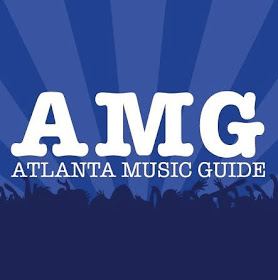By Matthew Greenia
Guitar Wolf came all the way from Japan last Monday to play at The Drunken Unicorn, their first Atlanta show since the tragic death of the original Bass Wolf in 2005. Hideaki “Billy” Sekiguchi, a founding member who performed and recorded with the band for over 15 years, died of a heart attack shortly after they returned to Japan from their last American tour. The Drunken Unicorn holds a particularly psychological meaning for the band, since the last show on that tour took place there. Those in the know were out in force, not willing to miss the triumphant return of Guitar Wolf’s authentic brand of Jet Rock ‘n’ Roll.
There’s something immediately striking about Guitar Wolf himself. The man commands attention the moment he takes the stage. With a few choice gestures, he makes it crystal clear that the audience had better watch his every move, lest they miss something they might never forget. Drum Wolf and the new Bass Wolf, U.G., built up a steady wall of texture and noise while Guitar Wolf slammed a beer, taking the act to a whole new level of performance art. He held his pick up high, building the audience’s anticipation of that first raunchy chord, before bludgeoning the guitar with it at exactly the right intervals. I’ve never seen anyone who was capable of making two chords, or even one note, sound so important. That seems to be the main distinction between Guitar Wolf and so many other punk rock bands; they replace punk nihilism with purpose. Every moment means something.
When they launched into “Jet Generation,” the band’s signature song, it actually sounded like I was standing underneath a shuttle as it was taking off, being disintegrated by the band’s sonic rocket fuel. Guitar Wolf may as well have been brandishing weapons, and indeed, he shot the audience with the guitar much in the same fashion as he battled zombies and aliens in Wild Zero, the B-movie the band put out in 1999. His command of audience participation was second to none. During a lengthy tribute to the MC5’s “Kick Out The Jams,” he pulled a hapless guy out of the crowd, put a guitar on him, showed him how to carry the guitar correctly, how to jump in the air like a rock star, and then bash the guitar on the one, leaving Guitar Wolf free to do his best Rob Tyner impression. As a finale, he built a human pyramid on the stage and crawled on top of it, collapsing it into a pile of boy and girl arms and legs.
All these attempts to capture the audience’s heart and mind are indicative of the overall Japanese scene’s fascination with American music. Even the most lackluster Japanese bands could be considered over the top by American standards, but Guitar Wolf may very well stand on top of the pile as one of the world’s most authentic rock stars. If you ever get a chance to be in Guitar Wolf’s pyramid, I say go for it.
